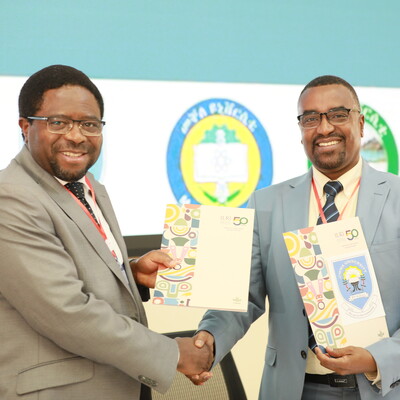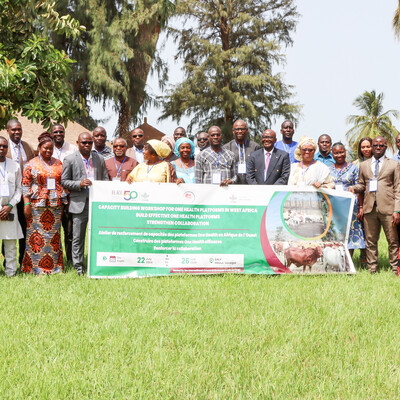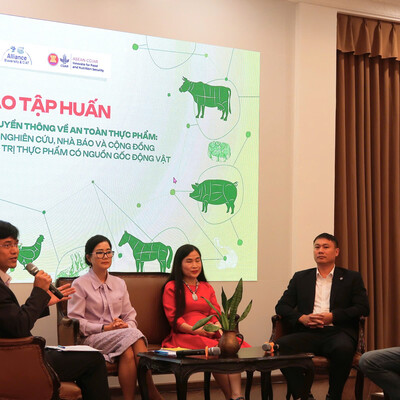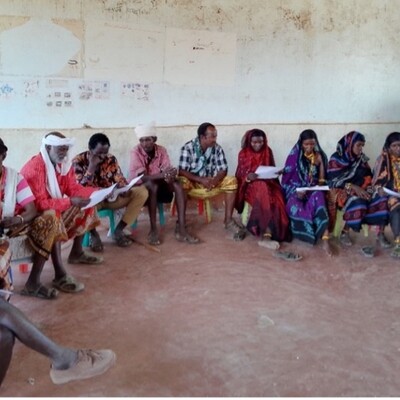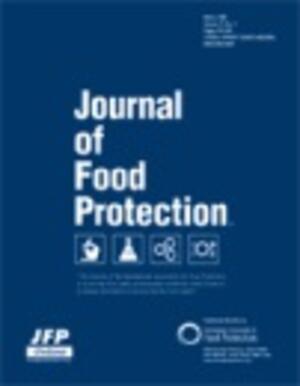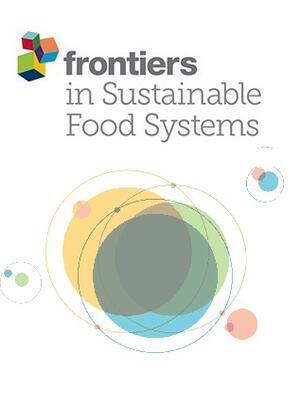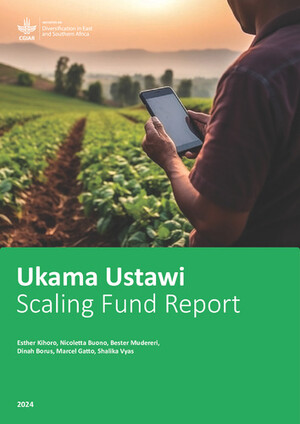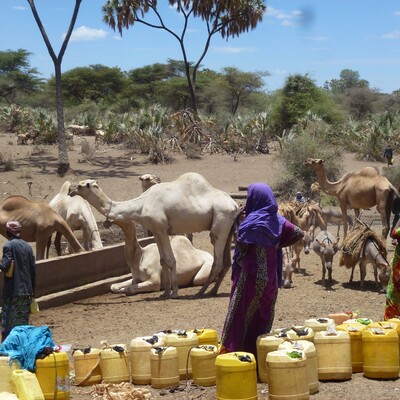
Three ILRI fellows attend World One Health Congress (virtually)
Three graduate fellows from the International Livestock Research Institute attended the 2020 World One Health Congress (WOHC), which occurred virtually this year from the 30th of October to the 3rd of November. The three were winners of the CapDev Grand Challenge, a 10-month long capacity strengthening process for ILRI fellows and earned the opportunity to attend the conference with their stellar research and presentation skills.
During the CapDev Grand Challenge, graduate and research fellows take part in a 3-minute research pitching contest, attend workshops and trainings to enhance their scientific writing, presentation skills, and ability to communicate their research to policymakers, funders and other decision-makers as well as developing team chemistry and leadership skills. The three winners of the Cap-Dev Challenge researched a wide array of topics:
Eithne Leahy
• Eithne Leahy is a Masters Graduate Fellow from the University of Edinburgh working with Johanna Lindahl, in the Animal and Human Health program. She works as a veterinarian surgeon and conducts research on food safety in informal markets in Nigeria and zoonotic disease in dairy cows in India.

Zelalem Moti
• Zelalem Lema Moti is a PhD researcher at the University of New England, Australia working with Alan Duncan at ILRI. His research focuses on ILRI-led Africa RISING Ethiopian Highlands as a case study on agricultural productivity.

Titus Mutwiri
• Titus Mutwiri is a PhD Graduate Fellow from Jomo Kenyatta University of Agriculture and Technology, Institute of Tropical Medicine working in the Animal and Human Health program with Eric Fevre at ILRI. His research focuses on the distribution and genetic characterization of Cystic Echinococcosis, a zoonotic parasite, in Western Kenya.
The three fellows had a wonderful time at the One Health Conference, both by attending sessions of their interest and by presenting a poster on the CapDev Grand Challenge process. In addition, they gained significant international exposure and the opportunity to sharpen their soft skills. It was a unique opportunity to meet and mingle with global leaders, renowned researchers and activists in One Health. International exposure and engagement is a key component of the CapDev Grand Challenge process.
Zelalem Lema Moti said that ‘participating in World One Health Congress 2020 allowed me to learn how global scientists work together at the animal-human-ecosystem interface to prepare for public health emergencies. The human-animal-ecosystem interface is a critical research area that could lead to appropriate interventions that prevent the transmission of zoonotic diseases.
A highlight of the conference was the poster session where the fellows and Wellington Ekaya, Head of Capacity Development at ILRI, discussed the impact of the CapDev Grand Challenge process, which aims at sharpening the soft skills of these next-generation livestock researchers hence boosting their capability to influence decision-makers. 'I thank the HORN project for sponsoring my participation at the World One Health Congress', said Ekaya. 'Thanks to them, I was able to frame innovative ideas that will strengthen the CapDev Grand Challenge process'.
Two quotes from Eithne Leahy and Titus Mutwiri capture the importance of the CapDev Grand Challenge and its relevance to One Health:
What was really fantastic about this One Health Conference was that all the Challenge participants contributed to and created a poster presentation explaining the CapDev Grand Challenge as an example of operational One Health. Essentially… the CapDev Grand Challenge utterly epitomized what One Health is all about. Bringing people together from different fields of training and fields of thought and exploring ideas together learning together and sharing our knowledge. Systems thinking is so fundamental to One Health because it is all about trying to break down that traditional silo way of thinking trying to approach a problem in a more integrated fashion. I think it was so lovely just to see how our poster and fit into the One Health Conference in the sense of it [promoting] the CapDev Grand Challenge as this champion of One Health [to] this global group of young researchers. – Eithne Leahy
This poster was meant to communicate the need of bringing young scientists from different nationalities, different continents together to engage, co-create solutions, collaborate and to communicate science effectively because the challenge is that there is a lot of disciplinary silos [that make it difficult to promote research]… when we come together as young scientists and we agree to engage and agree to collaborate and finally agree to communicate in one voice, then we definitely anticipate being given an ear and there after we would see change a step by step. –Titus Mutwiri.






